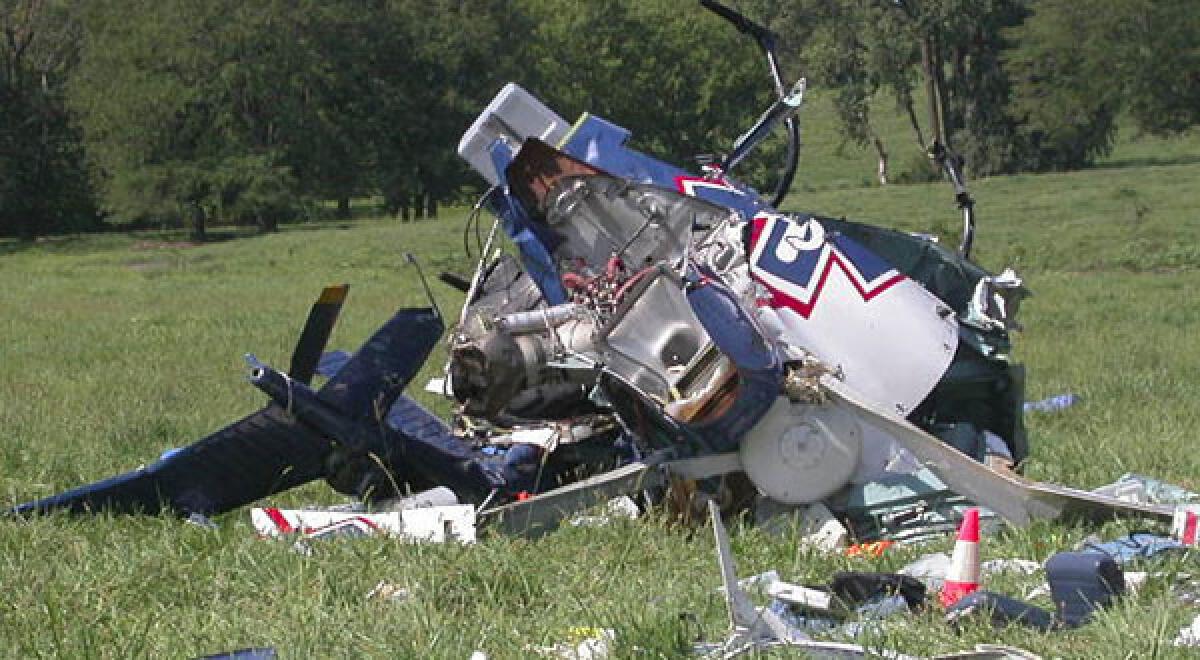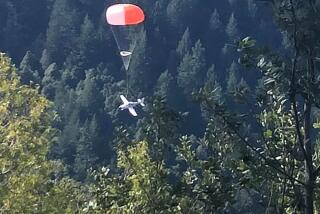Texting contributed to fatal crash of medical helicopter, NTSB says

The pilot of a medical helicopter that crashed in Missouri in 2011 had been texting, and that was a contributing factor to the disaster that killed four people, federal investigators said.
The case is the first fatal commercial aircraft accident involving texting. But the texts, some from the pilot to a female friend, were just one problem.
The five-member National Transportation Safety Board on Tuesday unanimously agreed on Tuesday that the crash was caused by a tired pilot who skipped preflight safety checks that would have revealed the helicopter was low on fuel. After discovering the fuel problem, the pilot decided to continue on the last leg of the flight anyway even though the correct procedure would have been to abort the flight and wait for fuel to be sent, investigators said.
“The nation’s helicopter emergency medical services perform important work transporting hundreds of patients and organs every day. We all share the same goal: to ensure that lives are saved -- not lost -- in these vital lifesaving operations,” NTSB Chairman Deborah Hersman said.
“But, this investigation highlighted what is a growing concern across transportation -- distraction and the myth of multi-tasking. When you are operating heavy machinery, whether it’s a personal vehicle or an EMS helicopter, you need to be focused on the task at hand: transportation, safe transportation,” she warned.
The helicopter crashed in a field near Mosby, Mo. on Aug. 26, 2011 as the craft was approaching an airport where the pilot planned to refuel. The pilot, a nurse, a paramedic and a patient all died.
The pilot, James Freudenbert, 34, of Rapid City, S.D., exchanged 20 personal text messages over about span of less than two hours preceding the helicopter crash, according to documents from the NTSB. The last text was sent 19 minutes before the crash, according to officials.
The helicopter was operated by a subsidiary of Air Methods Corp. of Englewood, Colo., the largest provider of air medical emergency transport services in the United States. The company’s policies prohibit the use of electronic devices by pilots during flight.
Freudenbert apparently missed several opportunities to see that the helicopter was low on fuel before he began the first leg of the mission. He took off from the company’s base in St. Joseph, Mo., in a craft that had been used the night before for training.
Ten minutes later, he arrived in Bethany, Mo., to pick up the patient. Freudenbert told the communications center that he was low on fuel, but estimated he had enough for 45 minutes of flight instead of the 30 minutes he really had. The report notes that he had slept five or fewer hours the previous night. He had worked more than 12 hours, since waking 13 hours earlier, by the time of the accident.
The pilot decided to continue with the patient to a hospital in Liberty, Mo., but changed plans and headed to an airfield 32 minutes away for fuel. The helicopter stalled and crashed about a mile from the airfield.
When the helicopter crashed, there was no fire. Less than one liter of fuel remained in the craft, which lost power due to “fuel exhaustion,” according to the findings.
ALSO:
Fish on board set adrift by Japan tsunami land in U.S.
N.J. boy, 6, shot in head after 4-year-old finds father’s rifle
Deputy’s wife killed when goes off in hands of 4-year-old
More to Read
Start your day right
Sign up for Essential California for news, features and recommendations from the L.A. Times and beyond in your inbox six days a week.
You may occasionally receive promotional content from the Los Angeles Times.






